A Look At Auditory Processing, Allergies, and Autism:
Aside from, or in addition to, the possibility of epilepsy being the cause of developmental delays (and hence leading to a wrong diagnosis of autism) in Jenny's son, we can also look at auditory processing symptoms being similar to those of autism. In addition, a child suffering from food intolerances and/or allergies can have behavioral issues (or what looks like behavioral problems, from pain, discomfort, etc.). In recent interviews, Jenny has said her son continues to have some "auditory processing" issues.
More on Central Auditory Processing Disorder:
Early Signs & Symptoms:Nearly all of the CAPD symptoms can be seen in autistic children (specifically those with speech delays or language impairments), but again, there is more to the diagnostic criteria for autism than the symptoms listed for CAPD. Doctors really need to use caution when they throw out an "autism" diagnosis, especially when language and speech disorders can mirror symptoms of ASD's. I've seen this type of "warning" on speech apraxia websites, cautioning that there are some similarities with autism. So, is it possible that Jenny's son's proper diagnosis could be CAPD, with epilepsy?
* Difficulty following verbal directions.
* Echolalia (repeating back words and phrases without comprehension).
* Re-auditorization (repeating back what was heard, and then showing comprehension).
* A child who says "huh" or "what" and requires more repetitions of verbal input messages.
* Speech sound discrimination difficulties, especially in noise.
* Highly distractible/active.
* Unintelligible speech, but with adequate vocal inflection and gestures.
* Difficulty with memorizing names and places.
* Difficulty repeating words or numbers in sequence.
* May have speech or language "delays."
With regard to allergies or food intolerances causing or worsening behavioral or psychiatric issues, we can look at this study (Untreated Celiac Disease and Development of Mental Disorders in Children and Adolescents):
The two adolescents described in these cases had suffered from episodes of major depression and other mental disorders before receiving a diagnosis of CD. The subject in case 2 had severe psychiatric symptoms years before adolescence. Soon after commencement of a gluten-free diet, coinciding with a decrease in circulating IgA antiendomysium and IgA antitransglutaminase antibodies, both youngsters considerably improved without any specific psychiatric treatment, and both remained in remission for at least 1.5 years of follow-up. Although the possible role of unrecognized psychosocial factors in explaining the remission cannot be excluded, it seems likely that in these cases major depression and severe behavioral problems, along with their improvement, were causally related to CD and its treatment with a gluten-free diet.Certainly not direct proof of food intolerances (or in this case specifically Celiac Disease) can lead to or cause psychiatric disorders, but enough information to consider the possibility. So, again, if Jenny's son is a child with epilepsy (and associated delays) along with CAPD and/or food intolerances, all of that could add up to what looks like autism. It also would further explain this so-called "recovery" and why such improvement (apparently in speech and behavior) supposedly followed a switch to the GFCF diet (keep in mind, it may have been the epilepsy treatment helping the speech).
Since unrecognized CD may predispose the sufferer to serious mental disorders and behavioral problems, it should be taken into account in differential diagnosis in all age groups. The mechanisms involved in the etiology and pathogenesis of mental and behavioral disorders related to CD, and even to celiac-type gluten sensitivity, remain unresolved.
JUST MORE HYPOTHETICAL FOOD FOR THOUGHT...
*Disclaimer: I do not have any personal knowledge of Jenny McCarthy or her son's medical history, other than that made available to the public (via media outlets, et al). These are simply questions I feel worth raising, and ideas worth investigating.
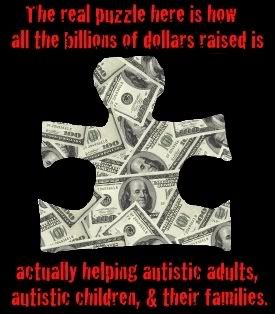





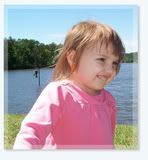

 This Way of Life
This Way of Life

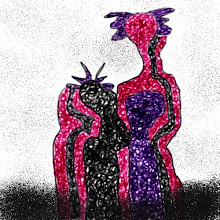

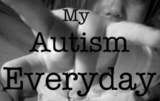





 "Autism is a way of being. It is pervasive; it colors every experience, every sensation, perception, thought, emotion, and encounter, every aspect of existence. It is not possible to separate the autism from the person."
- Jim Sinclair
"Autism is a way of being. It is pervasive; it colors every experience, every sensation, perception, thought, emotion, and encounter, every aspect of existence. It is not possible to separate the autism from the person."
- Jim Sinclair


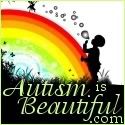




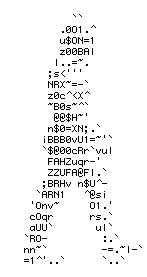

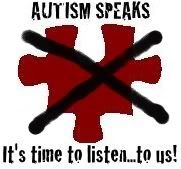












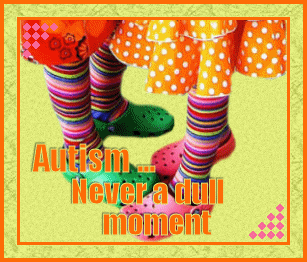

2 comments:
You should be ashamed of yourself. Ms McCarthy does not share your autism ideology so you question her child's diagnosis? Sad.
What is there to be ashamed of? Ms. McCarthy claims to speak for the entire autism community, yet there's significant information saying she may not be an "autism mom," as her son may never have had autism.
I am not questioning her child's diagnosis--as you see I assert this is hypothetical. It is not I who started this--Jenny herself did. She has made several public statements that her son no longer has autism. She has said multiple times that the neurologists who see him for epilepsy say he never had autism. That is significant.
This has nothing to do with ideology. It has plenty to do with someone claiming to represent a certain group, when there's a possibility her child doesn't even have autism.
Jenny often clarifies that there is no cure for autism--yet what is it when a doctor says the patient doesn't have a condition? Obviously, she is right in that there is no cure for autism and no one is "cured" from it. So, what does it mean when a physician tells his patient they don't have a condition (and further, that he never did)? It can't be that the autism was cured, but it could certainly be that he was never autistic to begin with.
I have known plenty of people who have received wrong diagnoses for various conditions. This isn't that rare. If he in fact suffers from say one of those epilepsy disorders, it would be very helpful to have him tested for it. I am merely offering some ideas, maybe even insight to parents going through similar things.
I can't imagine that this means nothing to those who do believe in recovery and agree with Jenny's stance on autism...
Post a Comment